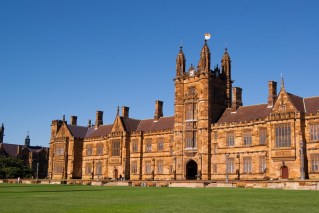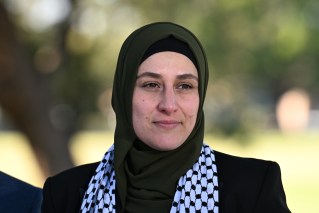Reflections on 1000 days of COVID: What were Australia’s biggest weaknesses?
The COVID pandemic thrust Australian health professionals into a wartime mindset and exposed weaknesses in the country’s ability to monitor the evolving crisis in real time, experts say.
Thursday marks 1000 days since authorities confirmed Australia’s first COVID-19 case, and experts want authorities to learn from that time to tackle inevitable future pandemics.
For Doherty Institute director Sharon Lewin, it is important Australia isn’t smug about its pandemic response.
“We need to be very objective and analytical of where there were gaps,” she said said.
Doherty led a consortium to advise the government on COVID-19 modelling and scenario planning.
“In science, transparency is everything – you share your scientific work when it’s ready, you open it up for criticism, you debate the pros and cons,” Professor Lewin said.
“In this situation, it was a lot more stressful because we were doing that work under contract for the government, so it wasn’t the usual process.
“That’s what we’ve got to examine now as a community – what’s the best way, [and] how much transparency and data is really important.”
The biggest weakness Australia had through the pandemic was its data systems and inability to access and interpret information in real time, Professor Lewin said.
Information sharing was complicated in Australia by state and territory government data ownership, along with the mixed public and private health system, and it crippled the response, she said.
“Having general practice privatised, a fragmented hospital system – [there’s] a whole lot of reasons why we can’t access data in real time,” Professor Lewin said.
“That is one of the biggest things that we have to fix.
“It’s very important even now in understanding the deaths that are happening from COVID.”
Professor Lewin noted Australia still needed to invest in its capability to develop vaccines and therapeutics, host clinical trials, and manufacture treatments.
Then it needed to turn its attention to how it worked within the wider region and how vaccinations were distributed between rich and poor countries.

Professor Sharon Lewin and Victorian chief health officer Brett Sutton at a COVID briefing. Photo: AAP
Royal Brisbane and Women’s Hospital’s infectious diseases clinician Krispin Hajkowicz pointed to a nimble, adaptive system as the most important element of a pandemic response.
“The biggest learning for me by far is that plans are not very useful,” Dr Hajkowicz said.
“What you need actually is a very responsive, reflexive system that can see where the problems are and shift [things] within a week or even a couple of days … as new variants emerge, new treatments come along, [and] new populations get infected.
“We need a warm base of ongoing work in pandemic viruses and viruses in general to make sure that we’re ready to go next time.”
Associate Professor Lauren Troy, a respiratory medicine specialist at Sydney’s Royal Prince Alfred Hospital, said health workers’ compassion at the ground level assuaged deficits in the system.
A thousand days on from when authorities confirmed Australia’s first case of the virus, she felt “battle-hardened”.
Experts maintained they always knew Australia would get through the pandemic, with Professor Lewin saying she thought of COVID as wartime in the early days.
“My parents went through the Second World War – they’re both European, and they’ve lived in hardship over the years,” she said.
“[I thought], ‘That’s what we’re going to experience through this, but we will get to the other side’.”
Dr Hajkowicz added that while he thought Australia would get through COVID-19, it was more a question of how much misery and suffering people would endure in the meantime.
“We got through it with a lot of harm anyway and I think we were very worried about how much harm would be caused,” he said.
-AAP








